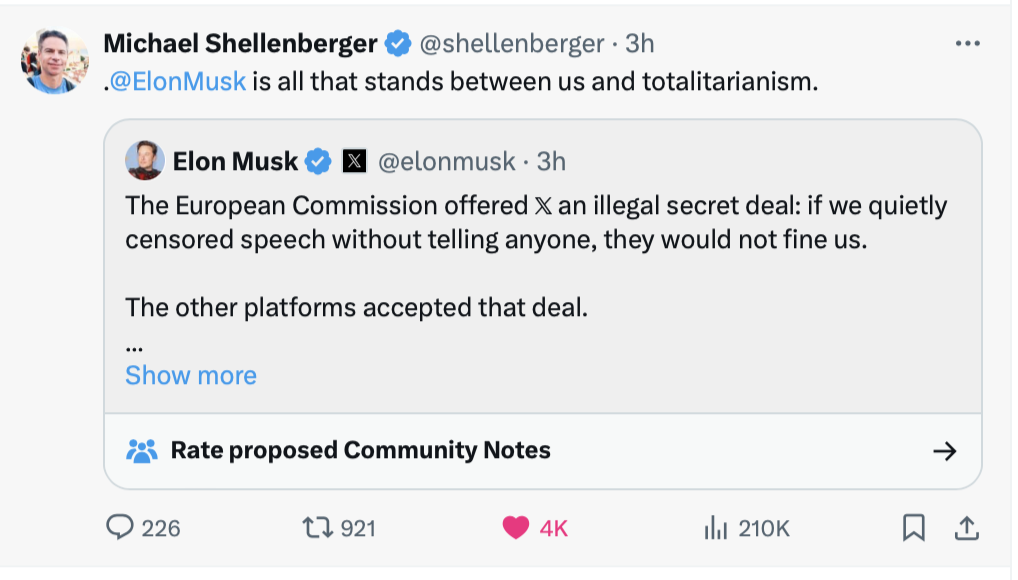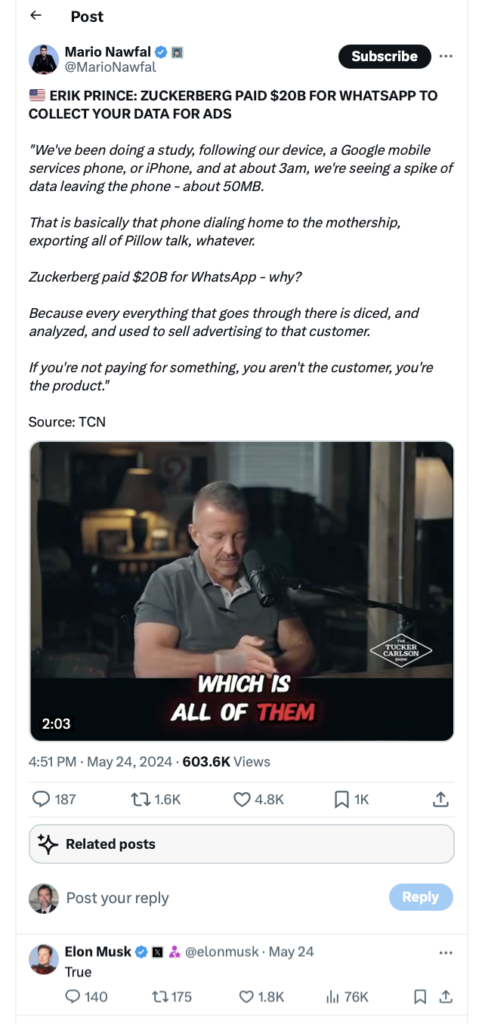Matt Taibbi, in his latest, "Maintain Your Brain," at Racket News:
I started to worry over what looked like the removal of multiple lanes from the Information Superhighway. Wikipedia rules tightened. Google search results seemed like the digital equivalent of a magician forcing cards on consumers. In my case, content would often not even reach people who’d registered as social media followers just to receive those alerts.
I was convinced the issue was political. There was clear evidence of damage to the left and right independents from companies like NewsGuard, or the ideologically-driven algorithms behind Google or Amazon ad programs, to deduce the game was rigged to give unearned market advantages to corporate players. The story I couldn’t shake involved video shooter Jon Farina, whose footage was on seemingly every cable channel after J6, but which he himself was barred from monetizing...
We’re entering a stage of history where, like the underground resistance in Bradbury’s book, we’ll have to build some consciousness as a movement to save the human mind. Because thinking for oneself has already been denounced as a forbidden or transgressive activity in so many different places (from campuses to newsrooms and beyond), it’s probably already true that membership in certain heterodox online communities is enough to put a person on lists of undesirables.
Twenty-five years ago, most of us thought it would be a great idea to digitize everything and connect it to everything else. It was a great idea. My most recent moment of demoralization: now that everything is digitized and connected, it gives too much power to anyone who can manage to control it all. To open the gates to some and close them to others. It wasn't so terrible when their were hundreds of media outlets, but that's not the case any more. Worse yet, a lot of the censoring is being don surreptitiously (e.g., shadow-banning, stealth editing and outright censoring). Increasing numbers of us are getting the sense that we are yelling into the void. I just don't know the extent of it. I don't know who is in charge. I don't know where this is leading, but if they can do this to Matt Taibbi, they can easily do it to small fish like me.
Matt urges: "We’ll eventually want to get to know each other a little more, be a little more interactive." I think that is the right approach, living and interacting significantly more locally, which will make it more difficult for power-hungry others, especially when well-intentioned (Mike Benz calls it "The Blob"; Brett Weinstein refers to this somewhat coordinated effort as "Goliath"), to intervene, to pit us against each other, to make us disappear, to generate yet another false consensus . . .
.




